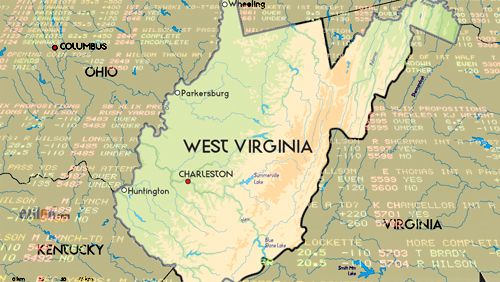The surprise decision of the U.S. Supreme Court to hear arguments in a case that aims to legalize sports betting has pushed lawmakers to introduce a pro-betting bill in West Virginia.
 Democratic Delegate Shawn Fluharty of Ohio believes that allowing sports betting will provide additional revenue for the cash-strapped state and the developments in the Supreme Court is welcome news for legislators, according to Charleston Gazette-Mail.
Democratic Delegate Shawn Fluharty of Ohio believes that allowing sports betting will provide additional revenue for the cash-strapped state and the developments in the Supreme Court is welcome news for legislators, according to Charleston Gazette-Mail.
Fluharty, who sponsored a bill to legalize sports betting at West Virginia’s casinos during the 2017 regular session, wants to get ahead of other neighboring states in allowing sports betting, like when West Virginia allowed racetrack video lottery in the early 1990s and table games in the early 2000s.
“If we’re able to get in front of this, we might be able to get out ahead of the other states for a few years,” Fluharty said. “The state desperately needs to generate new revenue.”
The legislator has already come up with a plan should the Supreme Court decide in favor of sports betting. He said that the state will convert a portion of the gaming floors of West Virginia’s four racetrack casinos and The Greenbrier casino to sports books.
These floors will feature displays showing upcoming games and betting odds, big-screen televisions and windows where patrons would place bets.
West Virginia is one of five states that joined the New Jersey sports betting case by filing an amicus brief in NJ’s appeal to the US Supreme Court.
The states’ amicus brief argued that Third Circuit court rulings usurp states’ rights by maintaining the federal ban on sports betting: “In upholding the Professional and Amateur Sports Protection Act (“PASPA”) … the Third Circuit radically expanded the doctrine of federal preemption by holding that Congress may forbid the States from repealing their existing laws without affirmatively setting forth a federal regulatory or deregulatory scheme.”